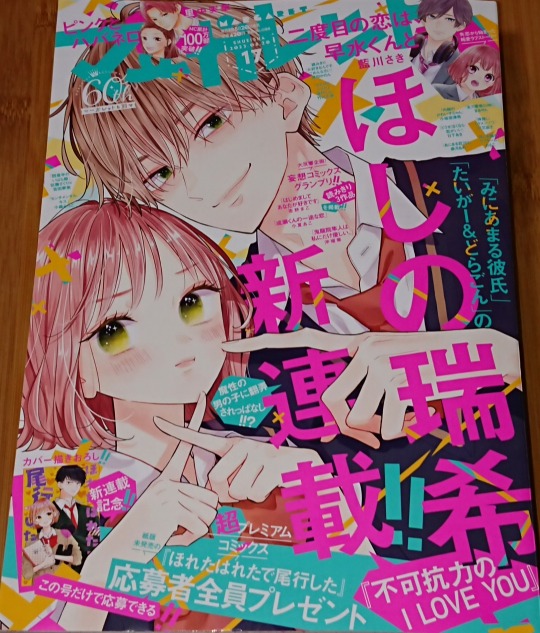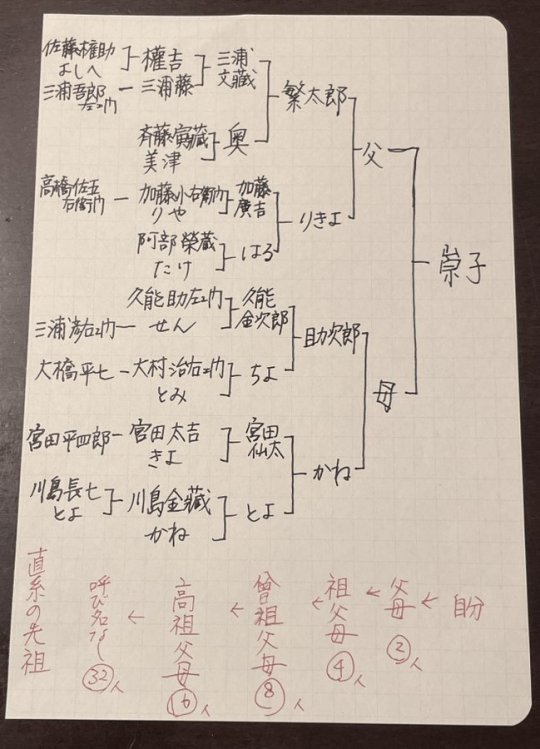#夏じたく
Explore tagged Tumblr posts
Text

4 notes
·
View notes
Text
昨日は長い一日だった
昼前に起きてから、夕方過ぎに仕事へ出掛け、帰宅時間は朝の8時30分くらいで一日を堪能したな〜!て感じでした。笑 朝食べる月見すき焼き丼メガは幸せすぎますね♪ これ美味しかったな〜、終わる前にまた食べたいな〜。 最近のトレンドというかなんというか、前にこのブログでも書いたかもしれないけど! aespaカリナさんのSupernovaハートを何にでも付けるという。笑 Meituでいつまでやっているのかわからないけど、終わるまでは続けようと思います。 そんなところかな〜。 世間��には三連休だったらしいですけど、俺は普通に働いてました。 でもそんな中で楽しみがあったからオールOK! そんな感じ♪ JAMた!(じゃむた!)@ドラム好き→@jamta_love
#aespa#Drummer#Drums#Jamtter#JAMた!#KARINA#Love#Twitter#X#エスパ#カリナ#くるちゃん#くるる#じゃむた!#ジャムッター#ショートダイアリー#ドラマー#ドラム#なぁ#なぁちゃん#ぼやき#もも#ももももももんにゃ#ももんにゃ#ユ・ジミン#夏#大好き#好き#思い出#愛
0 notes
Text
[Copilot]に教えてもらう今日は何の日?|令和6年8月2日|今日の記念日・出来事・暦
本日、令和6年8月2日(水)は? Copilot作:大雨時行 旧暦:06/28 六曜:先負(せんぷ・せんまけ・さきまけ) 何事も控えめに平静を保つ日。午前は凶、午後は吉。 「先んずれば即ち負ける」という意味がある日で、午前は凶、午後(14時以降)は吉と言われています。 「負」という漢字が使われていることから、訴訟、勝負事、契約なども良い結果を得られないとされますが、午後以降は凶から吉に転じるため、どうしても何かこの日にすべきことがある場合は、14時以降にできるかどうか予め検討するとよいでしょう。 六曜(ろくよう・りくよう)とは、「先勝」「友引」「先負」「仏滅」「大安」「赤口」の6つの曜を指し、日にち毎に縁起の良い・悪いを判断する考え方です。「先勝」→「友引」→「先負」→「仏滅」→「大安」→「赤口」の順で繰り返されています。 六曜は中国から始まり、日本には鎌倉時代に伝…
#8月2日#Copilot#ぎゅうしゅく#さきまけ#せんぷ#せんまけ#たいうと��どきにふる#たいかにち#たいら#ぢかにち#てんいちてんじょう#ふくにち#今日の出来事#今日の記念日#今日は何の日#令和6年8月2日#先負#十二直#土用#地火日#夏土用#大禍日#大雨時行#天一天上#平#復日#暦#牛宿
1 note
·
View note
Text
形だけのインクルーシブ
夏休みになる前にきれいに並んだ丸をながめるのが好きだった。
よくできましたの○、5段階評価の5、最高評価のA。まっすぐに並ぶ形が美しかった。
そう、成績表をながめるのが好きだったのは、私の成績が良かったからだ。
私の成績表は美しくなくてはならず
乱れていると人一倍恥じた。
国連に怒られてから日本もインクルーシブ教育に取り組もうと言われはじめたばかりの昨今
成績表はどう変わったのだろう。
誰かが勝手に決めた目標���
達しない子の気持ちを
小さな頃の私は
理解できなかった。
日本のインクルーシブはまだまだ課題だらけで
同じクラスに入れる形だけのものに近いように感じる。
学校に来るのも一苦労だったあの子
入院ばかりのあの子
文字の読めないあの子
発表できないあの子
あの子達は同じクラスにいたけれど
本当に
インクルーシブだったのかな。
誰にも見られないように
成績表を隠すあの子は
本当に頑張っていなかったのかな。
私に 「うらやましい」 と口にしたあの子が
今も日本にたくさんいるんじゃないかと思う。
日本だけじゃない、世界にだってまだまだたくさんいるのだ。
そして誰よりも抜きん出ようと
自分を律する小さな子どもも
たくさんいる。私のように。
曲げられない子どもと
曲がっていく子どもしか
そこにはいない。
不登校の子の目標が学校に来ること(出席だけ)になっていないか?
教室にいられない子に協調性を求めて評価を下すのか?
特別で支援が必要だから皆と違う基準で測るのか?
疑問や課題が山積している。
成績のつけ方、画一的な課題の設定
全て変えてあげないといけない。
極端な話
テストの結果だけでも良いし
逆に授業の態度だけでも良い。
本当の意味でその子どもの価値を認めてあげる
それだけで良いような
そんな考え方でなければ
インクルーシブなんて成功しないのではないか。
当事者ではない
ただの大人にもわかるくらい
日本の教育が変わると良い。
本当のインクルーシブを目指すなら
成績表も出席票も学び方も学ぶ内容も
もっと変えなければならない。
…のだろうな、と
ふと夏休みに入る子ども達の
朝顔を運ぶ姿を見て
思うなどした。
#日記のようなもの#インクルーシブ#インクルーシブ教育#提案#みたいなもの#成績表#変えて欲しい#夏休み#そろそろ?#成績#気にするな#って言っても#気になるよね#個別に合わせた#成績じゃないと#意味がない#クラスが一緒でも#意味なし#よくても悪くても#評価が人を縛る#と思う
1 note
·
View note
Text

この仔猫ちゃんとTreeの写真は 『 NPO法人そえ樹 』 のクリスマス会だったかな🎄🐈⬛!?

ここの施設は、保護猫譲渡会じゃなくっても、いつもどこかしらに猫がいる𓃠のでくしゃみが止まらない🤧
ニャンコには居心地の好い場所だから集まって来るんだろうねきっと(ΦωΦ)💕
2007/06/23に一宮の丹陽支所を借りて開催された
クラスの津久井さんとのふれあい会🥌

もう、あれから17年も経ったみたいだ⏳
『 👙 夏の日の1993 🎐🍧』
津久井さん🥌の生歌聴かせてもらって、2007年の当時はもう歌声が聴けなくなるだなんて思いもしなかったけど、2009年に膵臓がんが判明して50歳目前で亡くなってしまったそう😢🌟
2009年10月2日(49歳没)
録画していたら、あのハスキーボイスを残しておけたのに、動画を撮るという文化が当時の私の中には無かった📹
今の時代だったら確実にスマホで動画撮ってたのに、この写真一枚しか残ってない⤵😰
今の進歩した医療でも癌のステージによってはやっぱり治すのは難しいんだろうか🧐?
人って、あの頃に今の技術があれば〜とか、今の知識があれば〜とか、悔やまれる事ってたまに経験するもんだよね😶🌫️
簡単な筆算できなくて電卓に頼っちゃう時は、逆に現役時代の能力だったらな〜って思う時もあるけどね🧠🔢
体力だって若い頃より断然落ちたし🏃♀
人間は悲しいくらい体力も能力も衰えていくもんです😮💨
youtube
youtube


#丹陽支所#丹陽町出張所#病魔との戦い#カーリングみたいなTシャツ#貴重な時間#class#津久井克行#GMAジャパン#GMAエンタープライズ#懐メロ#トビウオ#夏の日の1993#冬の日の2009#里親募集中#ルタくん#梅くん#NPO法人そえ樹#保護猫#保護猫と暮らす#保護猫譲渡会#2007年#17年前#6月23日#ギャル#ガラケー#折り畳み携帯#猫踏んじゃった#今日は雨の満月🌕#アナログとデジタルの狭間
0 notes
Text

あああーーー!!!先生は私の名前を書いた!!!すごいねーーー!!!きれいね…
1 note
·
View note
Text
人生は長いのだから
日常の中に溢れる苦痛や喜び 本当に多くの出来事がやってくる その度に悩み苦しみ、考える 人生は長いのだから のんびりやっていこうかな そう思えるようになる時期がやってくる 生きているだけでじゅうぶんだと思うから 本当の辛さを感じた時にそう思えるのかもしれない この時期��なり夏バテを感じるようになりました 皆様も、くれぐれもご自愛くださいね 以前に書いたブログのご紹介です 多様性 | 田中 絵里 公式サイト(くれたけ心理相談室 名古屋・知多) (counseling1.jp)

View On WordPress
#1人じゃないよ#くれたけ心理相談室半田#くれたけ心理相談室名古屋本部#くれたけ心理相談室知多#くれたけ心理相談室長久手#のんびりいこう#人生は長い#半田カウンセリング#名古屋カウンセリング#夏バテ対策#多様性#大丈夫#悩み 不安#更年期 不安#東海市カウンセリング#生きる大変さ#知多カウンセリング#苦痛の乗り越え方
1 note
·
View note
Text
今日読んだ漫画 2023年8月8日(火)
パルシィ(漫画アプリ)
🔫『キリングライン』モリエサトシ
LINEマンガ/デジタルマーガレット(デジマ)
☔『この恋は世界でいちばん美しい雨』碧井ハル+宇山佳佑
作品ページ
⬇️
この恋は世界でいちばん美しい雨
🌸『桜のような僕の恋人』加藤朱々+宇山佳佑
作品ページ
⬇️
桜のような僕の恋人
LINEマンガ
🌸『恋々こい』しちみ
ミモット
🐱『吉川さん家の猫事情』吉川景都
作品ページ
⬇️
【吉川さん家の猫事情】#1話 「家に猫が5匹もいると…」 - マンガ連載:吉川さん家の猫事情 - mimot.(ミモット)
マーガレット2023年17号
✨『はじめまして あなたが好きです』杏野まこ
📱『大好きなんですごめんなさい』須田かのん
☂️『成瀬くんの一途な恋』小夏あこ
👮♂️『全力警察24時!』まあやん

#今日読んだ漫画#キリングライン#モリエサトシ#この恋は世界でいちばん美しい雨#碧井ハル#桜のような僕の恋人#加藤朱々#宇山佳佑#恋々こい#しちみ#吉川さん家の猫事情#吉川景都#はじめまして あなたが好きです#杏野まこ#大好きなんですごめんなさい#須田かのん#成瀬くんの一途な恋#小夏あこ#全力警察24時!#まあやん
0 notes
Text













『NIPPONグラドル58人』
参加モデル(五十音順)/
葵成美,青山天南,青山ひかる,蒼山みこと,赤城ありさ,朝比奈みゆう,天木じゅん,天野麻菜,亜和,伊織いお,池田ゆうな,池本しおり,石井優希,市原薫,遠藤まめ,大嶋みく,木南美々,久我るり,草野綾,榑林里奈,紅羽りお,小島まゆみ,佐野なぎさ,篠見星奈,霜月めあ,鈴木聖,鈴木ふみ奈,世良ののか,蒼馬月葵,高砂ミドリ,高梨瑞樹,竹川由華,ちとせよしの,塚越愛実,東条澪,徳江かな,中川心,長澤茉里奈,名取くるみ,名波なな,西綾乃,西永彩奈,花咲楓香,花乃衣美優,林凛,原つむぎ,ぷにたん(能美真奈),まいてぃ,三田悠貴,三橋くん,美輪咲月,もものすけ,森くるみ,森脇梨々夏,やしろじゅり。,柳瀬さき,雪村花鈴,弓川いち華
#プレイボーイ#グラビアアイドル#週刊プレイボーイ#週プレ#グラドル#葵成美#青山天南#青山ひかる#蒼山みこと#赤城ありさ#朝比奈みゆう#天木じゅん#天野麻菜#亜和#伊織いお#池田ゆうな#池本しおり#石井優希#市原薫#遠藤まめ#大嶋みく#木南美々#久我るり#草野綾#榑林里奈#紅羽りお#小島まゆみ#佐野なぎさ#篠見星奈#霜月めあ
581 notes
·
View notes
Text
本日『蛍火艶夜 下』が発売されました。
描き下ろしが4編70ページ。電子書籍の配信一覧等はウツツカナタのTwitterをご覧下さい。もちろん書店で紙も買えます。
よろしくお願いします!
それよりもビッグニュースはとにかく
うす消し加工の紙の本、「蛍 火 艶 夜 河 原 版」が来年に発売されます…!!
はじめてデカ文字使っちゃったよ
これ本当にすごい事です。チンがライトセーバーになっていないエロシーンを紙で読めます。雑誌サイズで。
担当さんが新潮社のおエラおじちゃんを騙…説得してくれて なんとか法の目を掻い潜ってくれて
完全受注生産という形でエロ本を あの 明治29年創立 128年の歴史を持つ新潮社様が作ってくれるんだよ お願いします予約受付は2/3からです。買ってください……鬼高いけどオマケ頑張るんでお願いします……
普段宣伝はあんまりしないんだけどこれだけは
もしこの「河原版」がそれなりに売れれば、このラインであとに続くエロ本がまた生まれる���もしれません。
あの明治29年創立新潮社おエラおじちゃんをまあ…ええか…と言わせるには売り上げしかないので どうかどうかよろしくお願い致します。社会に物体のエロを増やさせて下さい。
下巻の描き下ろしについてのアレコレは折に触れ…
朝からみなさん拍手ありがとう やっぱり下巻土に埋めとけばよかったかな、とずーっと不安に思っていたから良かったよて言って貰えて嬉しいです。ありがとうございます。河原版買って おねがい
357 notes
·
View notes
Text






傳谷 英里香は、日本の女優。千葉県出身。KON-RUSH所属。女性アイドルグループ「ベイビーレイズJAPAN」のリーダーであった。 ウィキペディア
生まれ: 1995年11月2日 (年齢 29歳), 千葉県
映画: なれたら
身長: 158 cm
事務所: レプロエンタテインメント(-2022年7月); KON-RUSH(2022年11月-)
血液型: B
日本人の父とフィリピン人の母との間に生まれた。洗礼名はアンジェラ(Angela:イタリア語で天使の意味)。日本語の語順ではアンジェラ傳谷英里香となる。
スポーツ全般��得意。公式プロフィール記載の特技であるバスケットボールは小中の7年間部活に入部しており、中学生時代には副キャプテンを務めていた。同じ時期、水泳部、陸上部も掛け持ちしていた。スキューバダイビングは2017年夏に日帰りで資格を取得。
運動能力反射神経ともにメンバーの中ではずば抜けており、ベイビーレイズのメンバーと運動で争う企画では独壇場であった。
ピアノも幼少時より習っており、「第17回Japan Expo」のため渡仏した折には撮影で訪れたモンマルトルの丘にて両親の思い出の曲であるサザンオールスターズの「TSUNAMI」を演奏し、居合わせた現地の人や観光客の注目を集めた。
ベイビーレイズJAPAN結成以前はモデルまたはソロアーティスト志望であり、黒木メイサや安室奈美恵を目標としていた。このため結成当初はアイドル活動に全く乗り気では無く、自身のTwitterやブログなどで「元々アイドルというものが苦手でやりたくなかった。」とも語っていた。しかし、ベイビーレイズJAPANのメンバーとして活動していくにつれて「今は(アイドルが)好きです。ちゃんと言えます。」「前の自分に会ったら引っぱたきたいくらい全然違う世界だった。」と思うようになり、アイドルに対する考え方も変わっていったという。
ベイビーレイズ時代は「やるならとことん」を座右の銘としてことあるごとに明言しており、キャッチフレーズにもなり実際の行動規範ともしていた。
10代の間に体験しておきたいと、20歳の誕生日前に群馬県のみなかみバンジーでバンジージャンプを体験した。
ベイビーレイズ(JAPAN)時代はハーフと言うこともあり漢字が苦手キャラであったが、読書家であり実際はそれほど苦手ではない。自身の苗字の「傳」の字もバランスよく書きこなし、客観的には達筆の部類に入る。
『世界ふしぎ発見!』(TBS)の解答者として初めて出演した回を含め合計3度{2019年5月時点}もの全問正解のパーフェクト賞を獲得し、推理力・考察力に秀でた才女ぶりも披露している。
ロック音楽が好き。2017年1月に名古屋で共演してからSUPER BEAVERの大ファンとなり、1人でワンマンライブに参戦するほどである。女性シンガーでは阿部真央やあいみょんが好き で、ファンクラブイベントで彼女らの曲を歌唱披露したこともある。
読書好きであり、仕事の合間を縫って様々な本を読んでいる。哲学書や自己啓発本も好んで読む。小説も幅広く読むが、川村元気や住野よるの作品に造詣が深い。漫画はほとんど読まないが、ファッション関係の仕事に関心が強いこともあり、『ランウェイで笑って』は好きな作品であると表明している。
映画も非常に好きで、オフや仕事の空き時間を縫ってよく鑑賞する。幅広いジャンルを鑑賞するが、ドキュメンタリー物が好み。ファンイベントでは、おススメの映画として『グッド・ウィル・ハンティング/旅立ち』、『湯を沸かすほどの熱い愛』、『ワンダー 君は太陽』、『ルーム』、『君が生きた証』を挙げ、作品に対する熱い想いを大いに語った。
175 notes
·
View notes
Text
今日は深夜にミッション
池袋の大好きなお店の最終日。 片付け等の手伝い必要なら行こうかなと思っていたけど最初から頭数に入っていたみたいで楽しみ♪ とりあえず現在仕事中だから終わり次第向かう。 日曜日はそんなに動かないから良いんだけどね。 今朝ついに原神の会社の崩壊スターレイルも始めてしまった。笑 10連で星5が出たから幸先がいいスタートになった。 しかもめっちゃ強いし楽しい、コマンドバトルだから時間潰しにちょうどいい。 最近aespaの写真や動画がたくさん流れてきて幸せ。 カリナさんの様々な表情が見られて最高! aespaが最高の癒やしです。 そんな感じ♪ JAMた!(じゃむた!)@ドラム好き→@jamta_love
#aespa#Drummer#Drums#Jamtter#JAMた!#KARINA#Love#Twitter#X#エスパ#カリナ#くるちゃん#くるる#じゃむた!#ジャムッター#ショートダイアリー#スターレイル#ドラマー#ドラム#なぁ#なぁちゃん#ぼやき#もも#ももももももんにゃ#ももんにゃ#ユ・ジミン#原神#夏#大好き#好き
0 notes
Quote
すごく昔、東京に帰国したとき麻布十番のマックの二階でのこと。その頃、お札の切り替えがあって千円札のキャラクターが夏目漱石から野口英世に変わったんです。 こちら夏目漱石から こちら野口英世へ で、わたしの隣には女子高生らしき集団、5,6人が食べ終えてみんなで精算していました。 すると、中のひとりが千円札を出して、それが野口英世の新札だったらしく、「あれっ?!」と手を止めたんですね。そしてしみじみ見て、言った一言がすごく秀逸で「あれ、このおじさん髪型変わった??」と周りに尋ねたんです。そしてそこからさらに素晴らしかったのがしみじみ全員でお札を覗き込んで「ホントだぁ!!髪型変わってる!!」「えっ~、いいじゃん、新しい髪型!!」と意見が髪型変わったで全員一致したんです😂 もうこういう女子高生の無敵さ、大好きです😂
(2) マックの女子高生がウィットに富んだ会話をよくしているのはなぜですか?一番面白かった会話は何でしょうか。 - Quora
176 notes
·
View notes
Text
一週間の夏休みを取得して、先週またバンコクへ行って来た。
夕方空港に到着、1時間後にはホテルにチェックインしたが、程なくしてバンコク在住の白人のセフレダディからの到着確認メッセージが。支度して直ぐに向かうと言うと、今晩はデカマラのタチリバのタイ人も参加と。
久しぶりの休みで、更に3Pと聞いて急いで支度し、ワクワクしながらダディの住むマンションを訪問すると、ロビーにそれらしい俺より若めの男っぽい筋肉質な男前のタイ人が。迎えに来たダディが俺とタイ人両方に挨拶したので、今晩の相手と判明。お互いに笑顔で挨拶交わしてそのまま部屋へ。
リビングのテーブルには早速準備されたPが3本準備されていたので、それぞれケツ割れやハーネスに着替え、コックリンク装着して早速フライト開始。タイ人は自分で刺せないと言うので、ダディの指示により俺が刺してやることになり、3本並んでいるPから適当に1本取って最初にタイ人に。彼の腕はしまった筋肉質で羨ましいほどの血管バキバキだったので、スムーズに刺注出来た。ゆっくり注入終わるや否や彼は腕を上げながら咳き込むと同時にハアハアと目を見開いてそのまま超興奮状態に。その姿を見て俺もダディも興奮してしまい、それぞれ急いで注入。ダディがどれだけ仕込んだのか知らないが、俺も咳き込んでそのまま全身がカーッと熱くなり鼓動と息が早くなった後は、完全変態モードに。
急な超エロモードに入った俺達はその場でお互いの乳首を触りながら3人でベロチュー。気付くとダディとタイ人が俺の両乳首に吸い付いていて、俺はヒクヒクしながらビンビンになったチンコからケツ割れを通してガマン汁垂れ流し。それを見たダディが即座にしゃがみ込んで俺のケツ割れから染み出したガマン汁をベロベロと舐めはじめ、タイ人もそれに続いて俺のチンコをケツ割れから引っ張り出してビチョビチョの俺のチンコをしゃぶりまくり。
その興奮状態のまま、隣のベッドルームに移動。既に準備されていたエロビデオが流れる中、ベッドの上で3人でチンコしゃぶり合い。俺はダディのデカマラにしゃぶり着きながらタイ人にチンコしゃぶられて更に興奮。俺はダディのデカマラから金玉、そのままケツ穴を舐め回したが、タイ人も同じく俺のケツの穴を舐め回すので、あまりの気持ち良さに喘ぎ声とガマン汁が止まらない状態に。
その後はダディのエロいケツをタイ人と交代で掘り合ったが、タイ人がダディを掘っている時のプリプリしたケツを見て興奮して、掘っているタイ人のケツの穴を後ろから舐め回し、そのままガマン汁ベチョベチョのチンコを後ろから挿入。柔らかくてグチョグチョのダディのケツ穴も気持ちいいが、タイ人のプリケツの締まったケツ穴もかなり気持ち良かった。続いて俺がダディを掘っていると今度はタイ人が俺のケツの穴を舐め回し、指を突っ込んで来たかと思うと、おもむろにギンギンのデカマラを押し当ててきた。ゆっくり入れてくれと頼むと、タイ人はゆっくりとデカい鬼頭を押し込み始めた。すると、ダディがPopperを俺の鼻に持って来たので、それを深く吸うと、同時にタイ人のデカマラがグイッと押し込まれたが、不思議と痛みは殆どなく、堀りながら掘られる気持ち良さと変態なエロさが増して、むちゃくちゃ狂いまくった。しばらく連結したまま堀合っていたが、気付くとタイ人が俺のケツにイッちゃったと。それを聞いたダディがすぐさま俺のケツ穴を確かめるように両手で開くと、確かにザーメンがドロッと流れ出したのを見て、チュパチュパとケツ穴からザーメンを舐め取り、タイ人と俺にキスしながら口移し。3人でタイ人の濃厚なザーメンを舐めまわしながらキスしていたら、俺もたまらずイキたくなり、ダディとタイ人に顔射。二人はお互いの顔にかかった俺のザーメンを舐めまわし、その二人とザーメンキスしながら一回戦を終了。
その後はイチャイチャしながらの休憩を挟みつつ、翌日の昼まで更に2回追加+時々煙追加してエロく狂いまくってやりまくった。
最後はダディのデカマラで掘られ、何故かまた俺のケツに中出しされて、それを二人の口で吸い取られて、俺に口移しでザーメン向けまみれでキスしまくるという形で終了。その時には部屋の中も、三人の口もザーメン臭が漂っていたが、それが何故かエロくて心地良かった。
終了後は三人でシャワーを浴びてしばらく軽食を取りながら談笑して別れた。
その3日後、ダディからもう一度会おうとお誘いが来たので、喜んで向かったことは言うまでもない(その時のまたエロい絡みはまた気が向いたらレポートするかも)。
次回また行くのが楽しみでたまらない。
338 notes
·
View notes
Quote
選択的夫婦別姓を推し進めようとしている人達が言う『女性が輝ける社会』だの『選択肢が増える』だのは上辺を綺麗に取り繕っているだけの詭弁。各種不便はすでに解消されていてそれを周知させ拡充させるだけで済むのに、どうしても法律を変えなければと躍起になっているのは他に狙いがあると考えた方が自然だ。 仕掛けている人たちの真の狙いは『戸籍制度の廃止』で間違いない。 『戸籍なんてものは外国にはないのに!』 という人がいるが、まさにその通り。『他国に類を見ない素晴らしい制度』である。 私は自分の家系図を作るため、両親の実家を遡り、お嫁に来た人の実家まで含め、直系で辿れるだけ戸籍を取り寄せたことがある。(郵送だけで申し込み可能) 何の名家でもない、庶民だった父方、母方の先祖双方とも江戸後期まで遡れた。 明治に入ると先祖やその兄弟姉妹が産まれた時間、婚姻日、死亡日、死亡時間まで詳細に書かれていて、存在も知らなかった先祖の息吹を感じることが出来た。 父方の先祖に戦没者がいることもこの時初めて知り、靖󠄁國神社に問い合わせたら御祭神としてお祀りされていることも分かった。 『自分は一人で生まれてきたんじゃない。ここに書かれている人々やそれ以前の何百年、何千年の命のリレーの末に自分が存在しているんだ』 と心の底から感動した覚えがある。 自分の命は自分だけのものではない。ちゃんと大切に生きなければ、と思ったし、そうして繋がった命のバトンを自分が切ってしまったことに心底申し訳ないと思った。 200年近いこうした記録をしっかり残している日本の戸籍制度は本当にすごいと思ったし、子供の夏休みの自由研究で家系図づくりをやらせたら、直接的に命の大切さを説くよりよっぽど心に響くんじゃないかと思う。 今は専門業者もいるようだが、自分で出来るし大してお金もかからないのでこれを読んでいる皆さんには心からおすすめする。
三浦崇子 / X

174 notes
·
View notes
Quote
大学時代の夏休み、ある人物から、庭の花の水やりを半月ほど任されたことがあった。毎朝カブに乗って一時間かけて目的の家までいき、合鍵を使って中に入り、散水ノズルで庭に水を撒きながら小さな虹を眺めていた。上手く言えないんだけど、「僕の人生はこういう無駄を切実に必要としている」と感じた。
Twitter / everb1ue (via the-pica-has-lots-of-dreams)
175 notes
·
View notes